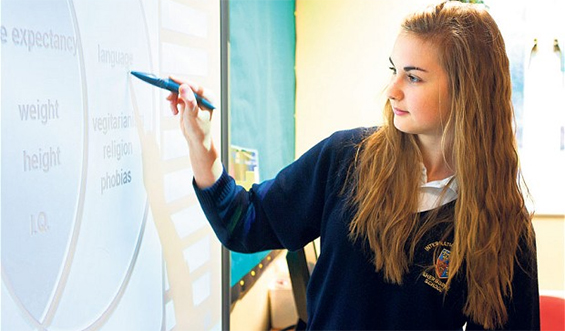
A first of its kind study has revealed that British students who attend private schools are up to two years ahead of their state-educated counterparts on academic measures.
A research group from the Center for Evaluation and Monitoring at Durham University critically examined and evaluated the differences in educational attainment between students in the two sectors from junior to prep school through the GCSE. For research purposes, students’ prior attainment, gender, and family background were taken into consideration.
Sponsored by the Independent Schools Councils, the study concluded that children in private schools are more successful at GCSE in all subjects – by up to two exam grades, writes Eleanor Harding of The Daily Mail. The most significant GCSE differences in grades were found in French, geography, and history, and the smallest were in chemistry, physics and biology.
According to analysts, the statistical difference is the equivalent to two years of education.
As Sarah Cassidy of the Independent writes, if privately-educated pupils were compared internationally on the Global Program for International Student Assessment (PISA), they would outperform Europe’s highest-achieving nations and be level with South Korea and Japan.
Previous data also shows privately-educated students are twice as likely to attend a Russell Group University than counterparts from state schools. In addition to that, students at private schools are five times more likely to continue their education at Oxford or Cambridge.
Julie Robinson of the ISC commented that the study proved private schools guarantee higher returns on investment, and based on the academic achievements, it is worth paying for an independent school. Professor Robert Coe, who participated in the research, said:
‘It is always difficult to unpick the causes of any differences, and we think it is unlikely to be purely an effect of better teaching, but we find a clear and significant difference in the GCSEs achieved that is not explained by any of the factors we can account for.’
Barnaby Lenon, chair of the ISC, told Irena Barker of TES that the findings showed how independent schools were having an impact on pupils of all abilities, and their success was not just a matter of selection or family background.
When asked by Sophie Jamieson of the Telegraph to comment the findings, a spokesperson for the Department of Education said as a result of the recent reforms towards social justice, 1.4 million more students are being educated in good or outstanding state schools than in 2010.
However, the study’s authors admitted the techniques they used including measures such as using postcodes meant the results needs to be “viewed with caution”. Due to the external factors not taken into account, it was possible that any causal result of attending private institution might be an “overestimate”.
Despite the non-controlled factors, the authors added, the evidence from the research suggests that counterparts students achieve more in private schools than in state ones when cross-sector differences are controlled.
It is the first research study comparing the academic achievements of pupils in state and private schools from the age of four years. The outcome suggested the differences in attainment of students in private and independent schools persisted from the earliest parts of childhood education.




